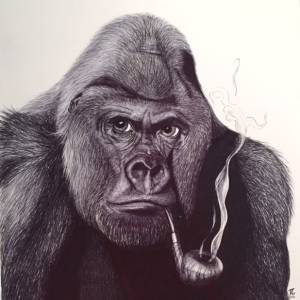DW - Devizes to Westminster
The initials can spark fear, memories of pain and sheer exhaustion in many minds. Never heard of it? The Devizes to Westminster canoe race is always at the Easter weekend, it's 125 miles of hard work, for those paddling and especially for the dedicated folk who support the paddlers and organise the event.
There are a few categories, basically Juniors who can paddle the course over 4 days with set camp sites, their cumulative time judges their position. For the Seniors it's a case of get going and then finish. That means backtracking from a time estimate for reaching Teddington at the start of the dropping tide (The Thames is Tidal up to Teddington) then anticipating two cruel hours to Westminster bridge and the finish. Consequently you paddle through the hours of darkness, which is usually on the Thames. So you not only need to be very fit, well aware of your abilities but also have an in-depth knowledge of the river and it's hazards.
The first 52 miles are on the Kennet and Avon Canal, the next 55 miles are on the River Thames, with the final 18 miles being on the Tideway. It remains the longest canoe race in the world and is a severe test of stamina and skill. From this morning people will be heading off into the distance, many for the first time, with their fear visible on their faces. The race is preceeded by four races called the Waterside series, designed to prepare crews for the main event. 6 months preparation is not unusual, by preparation I mean sleeping, eating and living the race.
I first paddled it as a Junior Marine Cadet in 1970, came 5th out of 95 crews. Later in 1973 and 1974 I represented the Royal Marines, coming 5th and 6th in the respective years but also winning the team trophy on both occasions. In 1973 we completed the course in 20 hours 25 minutes.
This picture from 1974, was taken at dusk as we neared Reading and the Thames. We were consuming something called Doc Jolly's Jollop, the precursor to isotronic drinks (Doctor Rick Jolly was the senior medic in the Falkland's campaign). A litre an hour meant our stomachs digested all the energy we needed to burn consequently we needed to pee a lot as we went along, it's an acquirred skill. Luckily you cannot identify the bloke in the rear seat or I'd have to kill you. I remember getting to Westminster, the first crew to arrive there, being met by many senior officers including the Commandant General and just being aware that I was about to collapse and the strong stench of urine was mine. Other members of the team then take over, strip you, help you shower and dress; the next thing you remember is waking up the next day.
Amongst the detritus of life two things stay in my mind. My heart rate was 45 beats per minute. Our main competition came from the SAS, euphamistically known as the Hereford Gun Club. About 3 hours after the picture was taken we slowly drew up on one of their boats, sat on the wake for 30 seconds in the dark then I simply nodded, we put in 30 hard strokes and dropped them, as we went past a tired voice enquired, "Who's that?" to which I cheerily replied, "Boo, guess who!" "Bloody Bootnecks??" trailed after us in the dark. Of such small victories are battles won.
DW Homepage

Comments
Sign in or get an account to comment.


